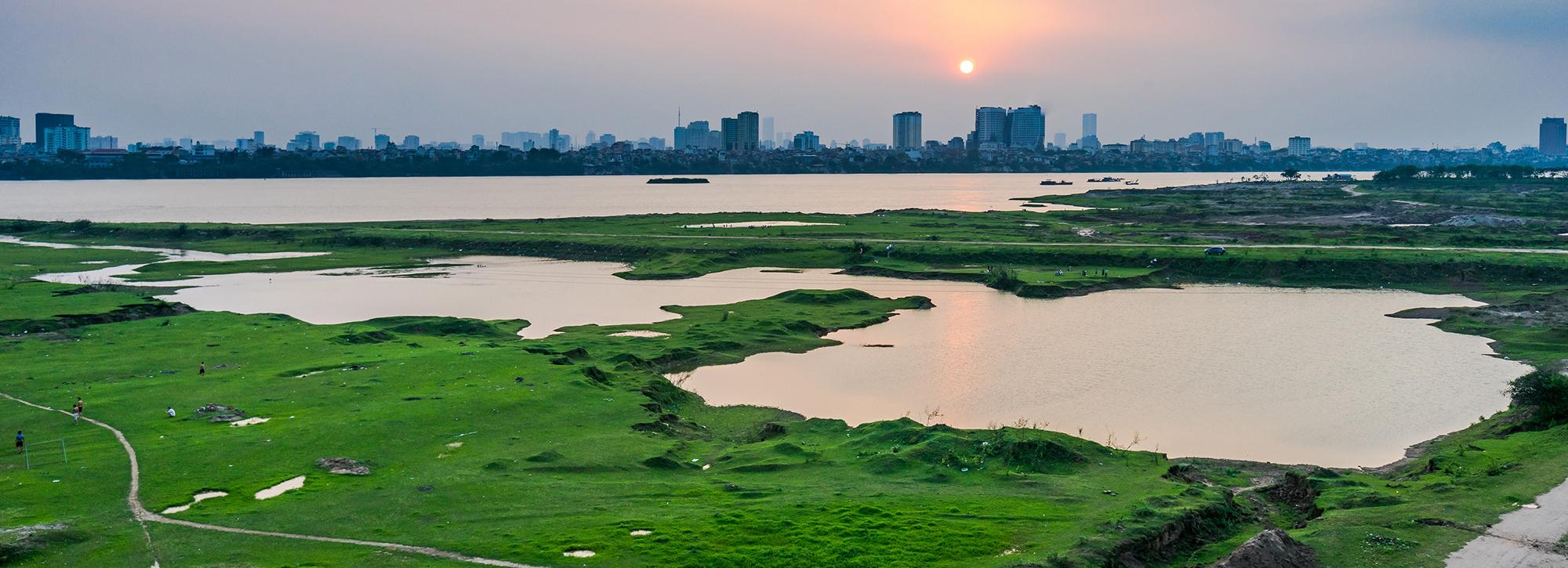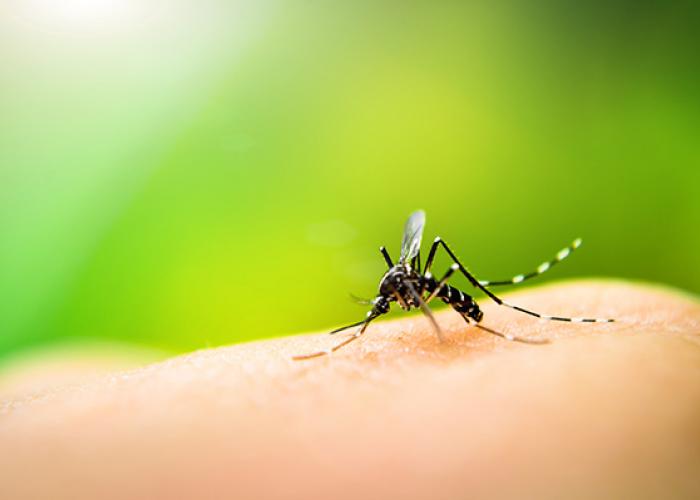
Leading a new Earth Observation project to help predict dengue fever outbreaks
The prevalence of dengue fever poses a global health issue, with half the world’s population now estimated to be at risk from this mosquito-borne viral infection (WHO Dengue Factsheet, April 2017). Found in tropical and sub-tropical climates worldwide, mostly in urban and semi-urban areas, the infection causes a flu-like illness which can develop into a potentially lethal complication known as severe dengue. HR Wallingford is leading a new project utilising Earth Observation technology, and funded by the UK Space Agency’s International Partnership Programme, to develop an early warning system which will help to predict dengue fever outbreaks in Vietnam.
In 2016, there were over 120,000 cases of dengue fever in Vietnam, an increase of over 25% on the previous year (Ministry of Health, Vietnam). Currently, there is no operational early warning system in the country to forecast the probability of future dengue outbreaks. This new project will develop innovative tools which will allow beneficiaries to issue alerts for dengue epidemics. This will help public health authorities to mobilise resources to those most in need. The same methods could also be used to forecast outbreaks of Zika, which is transmitted by the same type of mosquito, and which has recently begun to be reported in Vietnam.
In the course of the project, Earth Observation datasets will be combined with health and water availability information to produce a new integrated dengue forecasting model to understand and predict the impacts of the main environmental factors influencing the likelihood of future dengue epidemics. These include water availability, land-use and climate, since more rain, rapid urbanisation, and higher temperatures can all promote the breeding of the virus-carrying mosquitoes. The tools produced will be used to understand changing health risks posed by dengue for different temporal and spatial scales under future climate change scenarios. In addition, forecasts of water scarcity will be made and incorporated in the dengue early warning tool.
Darren Lumbroso, Technical Director in the Water Management Group at HR Wallingford, said: “We are delighted to be leading this ground-breaking project where, for the first time, an Earth Observation-based forecasting system will allow decision makers to identify areas of high risk for disease epidemics before an outbreak occurs, in order to target resources so as to reduce an epidemic spreading and to increase disease control.“
Forecasts of dengue epidemics with an eight-month lead time will be distributed to all national dengue response authorities. At the same time, the work will also help to improve water management in Vietnam’s transboundary river basins, where there is currently a lack of hydro-meteorological information. This will benefit local authorities’ planning by providing scenarios of the main stressors and their impacts on health and water security.
The ‘Integrated dengue early warning system driven by Earth Observations in Vietnam’ project is funded by the UK Space Agency’s International Partnership Programme and led by HR Wallingford, working with the London School of Hygiene and Tropical Medicine, the Met Office and Oxford Policy Management in the UK, and with the following international partners: the United Nations Development Programme, the World Health Organisation, the Vietnamese Institute of Meteorology, Hydrology and Climate Change, the Pasteur Institute Ho Chi Minh City, and the National Institute of Hygiene and Epidemiology in Vietnam.
HR Wallingford will be leading a second UK Space Agency project aimed at minimising the risk of tailings dam failures (earth embankments used to store toxic mine waste) through the use of remote sensing data in Peru. This project will use Earth Observation and Global Navigation Satellite System technologies to allow for more effective monitoring of the dams and therefore quicker action to avoid the tailings dam failures. The project will help to reduce damage to ecosystem services downstream of mines upon which many vulnerable communities rely for both their source of water and their livelihoods.
